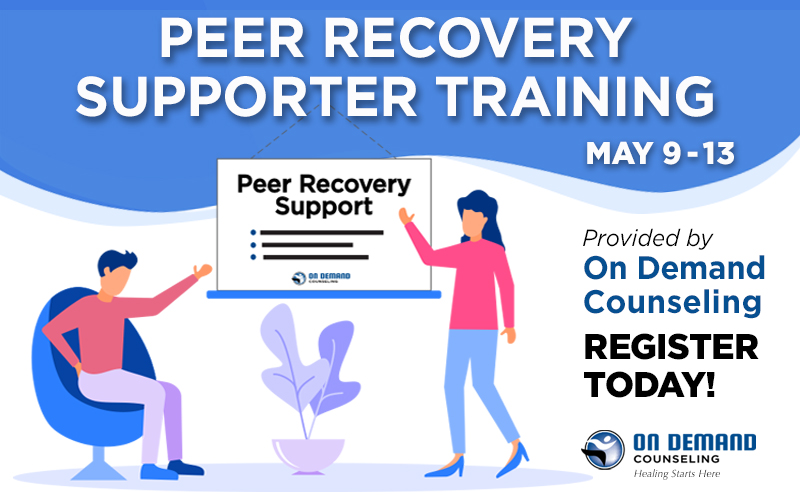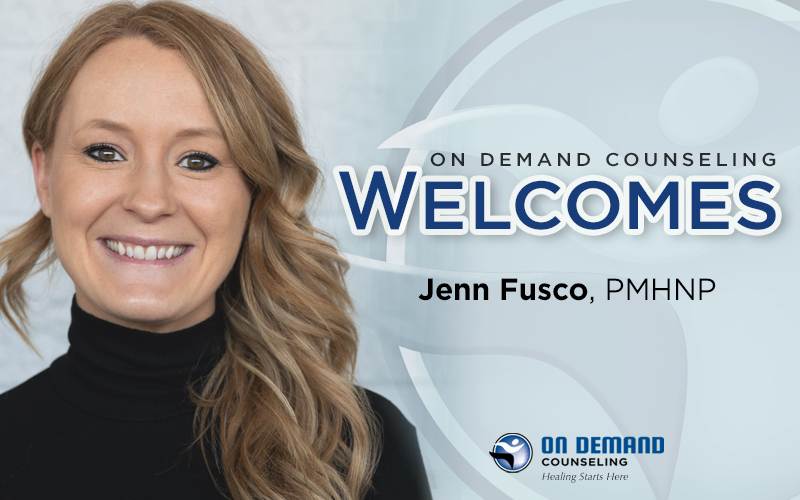 Addiction is a disease that affects the body, mind and spirit. More than that, the effects of substance use disorders leak out into every aspect of life. Close relationships are particularly vulnerable to problems caused by excessive drug and alcohol use. That said, it’s possible to overcome these hurdles and heal the wounds caused by the condition. Read on to find out about how addiction affects families — and the most constructive ways to move forward.
Addiction is a disease that affects the body, mind and spirit. More than that, the effects of substance use disorders leak out into every aspect of life. Close relationships are particularly vulnerable to problems caused by excessive drug and alcohol use. That said, it’s possible to overcome these hurdles and heal the wounds caused by the condition. Read on to find out about how addiction affects families — and the most constructive ways to move forward.
How Does Addiction Affect Families?
Of course, addiction impacts everyone in a unique way, and no two people’s experiences are the same. This is true of family members as well. There’s no right or wrong way to respond to addiction. It takes over someone’s body and mind in a way that’s profound and hard to understand unless you’ve experienced the effects.
Negative traits are exaggerated and positive traits abandoned in an addicted person’s quest to fulfill the seemingly inescapable urge to abuse substances. It can turn loving relationships fraught and difficult and render someone who was once honest and kind deceitful and selfish. Addiction tends to affect different family members in distinct ways.
Spouses
Spouses tend to bear the most obvious brunt of addiction when the issue occurs within the context of a marriage. Dishonesty and selfishness tend to drive a wedge between partners, with the person struggling with addiction unable to see the full impact of their behavior. As a spouse, you might react with anger, sadness, guilt or shame — but it’s important to take a step back and focus on seeking professional help.
Children
Children arguably bear the most damage when addiction is introduced into their family life. In most cases, they appear to get on with life as normal — although behavior such as sadness, trouble sleeping or acting out at school might occur. Children are highly adaptable, so the repercussions might not be expressed until they get older. The majority of damage happens beneath the surface because addiction is normalized and a dangerous example is set.
Parents
Parents can be badly affected if their young daughter or son falls prey to a substance use disorder. It’s difficult to not blame yourself, but blame and fault are unhelpful in this scenario. The best things you can do in this situation is get fully educated about addiction, seek professional help and work with a family therapist.
Siblings, Friends and Extended Family
Your friends, brothers, sisters, cousins, aunts, uncles and grandparents will be worried about you and keen to help you get better. Often when people try to suggest to an addicted person that change is in order, they’re met with resistance or even defensiveness. The best thing you can do is make your position about them needing to go to rehab clear but focus on listening to their problems, offering support and not enabling unhelpful behavior.
Effects of Drug Addiction on Family and Friends
Addiction can feel catastrophic because of the seismic waves of destruction it can lead to. Some of the most common ways we see addiction affect friends and family include:
- Partners, parents, children or close friends can turn into caretakers, which puts a huge strain on that person
- People who struggle with drug addiction or alcoholism can lose touch with their friends and family entirely
- Loved ones of an addicted person might blame themselves, causing their self-esteem to erode
- Trust usually breaks down when one person in a relationship uses substances to excess
- Heated arguments are much more likely to occur when one person is defensive and belligerent as a result of inebriation or withdrawal
Can I Help a Family Member Overcome Addiction?
You can help a loved one overcome addiction, but not by trying to be a therapist or police officer of their behavior. Lots of people try to take full responsibility when their loved ones are going through addiction, and it simply isn’t sustainable. You have your own life to lead and your own wellness to take care of — and attempting to save someone else is a major barrier for you personally.
You can help someone overcome a substance use disorder by calmly and gently pointing them in the direction of rehab. If they ask for advice, provide them with resources that offer information about how addiction works and gently encourage them to go to outpatient addiction treatment. For someone who continues to resist treatment, you might need to stage an intervention.
Helping a Loved One Through the Trans-theoretical Model of Change
The TTM says that people who struggle with and overcome substance use disorders go through five stages — although it’s sometimes listed as six. It’s not always a linear process, and people can jump back and forth between stages for a considerable amount of time. Although it doesn’t perfectly capture everyone’s experience, it does accurately represent significant turning points in the recovery process.
How your loved one responds to you — and to treatment — depends on the stage they’re at. Understanding where they are and explaining the TTM to them can be a good starting point for change.
Precontemplation
Precontemplation is the phase when the person doesn’t see any problem with their behavior and doesn’t desire change at all. Addiction can trick the brain into believing that substance abuse serves the greater good for that individual, and breaking free from that is a huge challenge.
The best way you can help them move forward is by gently trying to get them to see some value in the idea of understanding more about what addiction is. Don’t accuse or label them; instead, make suggestions about researching or seeing a doctor and discussing substance use to see if they think there might be a problem. Always remember to take a step back and look after yourself before taking care of someone with an addiction.
Contemplation
During the contemplation phase, they aren’t taking any steps to change — but they start to notice that the problems in their life might be directly related to drug use. It’s tempting to be pushy at this stage, but a gentle approach is usually better. If someone has a severe, life-threatening addiction, you might need to take drastic action, such as acquiring a court order. Otherwise, gentle persuasion to seek help from a professional and education are the most effective tools for recovery.
During contemplation, you might make a plan for rehab and the future together. They might drift in and out of feeling motivated towards change.
Action
Action is the point where they put the plan into action, go to a doctor or rehab facility and start taking serious steps towards healing. You can support them along this stage by encouraging positive behavior and being kind and caring.
Relapse
Not everyone will relapse along their journey to recovery, but many do. It’s not included as part of the stages of change to give people an excuse to slip back into old habits. Rather, it’s vital that someone overcoming a substance use disorder understands that relapse doesn’t mean they’re incapable of change. It might be a sign of an underlying mental health condition or just suggest that further work is needed in making the physical, social and mental changes necessary to get healthy.
The best way to help someone avoid relapse is to encourage their efforts to live a healthy lifestyle, talk about their feelings and seek help when they feel overwhelmed.
Maintenance
The final stage is maintenance, where the individual is in control of their symptoms and their focus has shifted onto a variety of constructive behaviors. You can support someone through the maintenance stage by continuing to offer support and kindness and doing healthy things together. We’d recommend that anyone who has been touched by addiction seeks therapy as a family and on an individual basis so they can work through the difficult feelings and situations that arise.
What Do You Learn During Family Therapy?
During family therapy, everyone gets an opportunity to express their feelings in a safe space. Under guidance from a counselor, you can work through difficult feelings and confrontation in a constructive way. During the throes of addiction, families can lose sight of the fact that working through problems and resolving them is possible. Some of the topics you focus on in therapy include:
Boundaries
Boundaries are rules you set that define what you will and won’t tolerate from other people. They also dictate how you respond when someone violates your boundaries. People with unhealthy boundaries tend to either take responsibility for actions that aren’t theirs or demand that someone else take responsibility for their feelings — for example, telling your spouse they can’t go out without you because you get jealous. You are placing control of your jealousy in their hands, which is unfair.
People with healthy boundaries take responsibility for their own feelings and actions. A therapist can help you untangle the damage done by addiction and form healthy boundaries.
Healthy Communication
The key to moving forward into a happier and healthier future is communication. People who struggle with addiction or mental health issues tend to lose the ability to communicate honestly and effectively. This has a serious domino effect on relationships, and family therapy can help you get back on track.
The Balance Between Positivity and Accountability
While it’s important to be positive and focus on improving self-talk and conscientiousness, accountability is just as crucial. Toxic positivity can take over when someone is excessively proud or complacent. It’s important to recognize faults, and where there’s still work to do while feeling a sense of achievement.
As the loved one of someone recovering from a substance use disorder, you can help them remain accountable by displaying this behavior yourself. A substance abuse counselor can help you both to remain accountable while striving for a better life together.
Education About Addiction
One of the most effective and transformative aspects of therapy is the educational aspect of it. For lots of people, learning about addiction helps them truly understand the implications of their actions. This is often an ongoing process, with the most profound impact occurring after a year or two of researching and learning about the condition.
Spouses, parents and close friends of someone with an addiction can help them by learning about addiction, too. When you have open channels of communication and approach them in a nonjudgmental way, you can discuss triggers or warning signs when they arise. Therapy can help you gain a full understanding of what they’re going through.
Support Groups or Ongoing Therapy for Families
Support groups such as Al-Anon are exclusively for the family members of people whose lives have been touched by addiction. It’s a good idea to attend group or individual therapy on an ongoing basis so you don’t experience long-term mental health consequences, such as depression or anxiety, caused by low self-esteem.
Find Out More About Addiction and Family
If you’d like to speak to an expert about how to help a family member seek treatment for addiction, call On Demand Counseling today at 330-270-8610.




